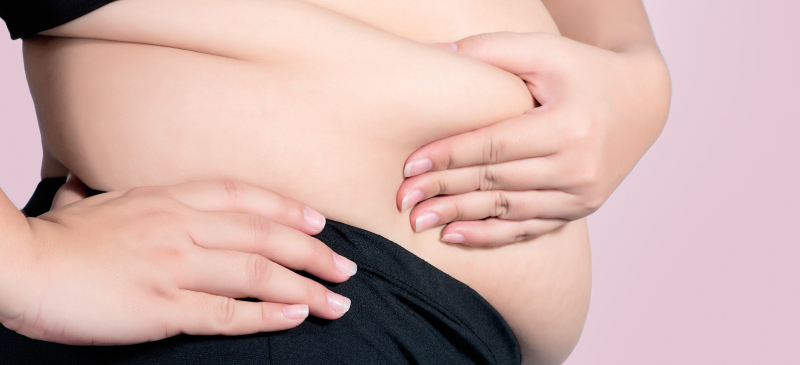Obesity remains a problem on many levels in South Africa – not only is it one of the biggest drivers of non-communicable diseases such as type 2 diabetes, but it also places a great burden on national healthcare.
Yet many people struggle to lose weight and maintain a healthy weight. We often blame genetics or a lack of time and dedication. But what if you were told that your gut health could be responsible for not shifting the numbers on the scale in the right direction?
What does the gut have to do with it?
Did you know that there are 10 times more bacteria called microbiota in your body than number of human cells?
The type and quantity of these bacteria differ depending on which part of the gut you look at. Environmental factors, such as diet, medication and disease conditions, can change the composition and number of your microbiota in a couple of days, but there is good evidence that your microbiota are influenced by your genetics – this means that the microbiota in each person are unique.
Here are the top three reasons how poor gut health may be making you fat:
1. Your immunity relies on good gut health
Most of your immune cells are located in your gut. So, if you are frequently ill, your bad gut health may be to blame. There is a barrier between your gut and blood stream which needs to be tightly protected to prevent the leakage of bad bacteria and foreign pathogens into your blood stream. If this happens you may have an inappropriate immune response.
Good gut health means a good amount and diversity of the bacteria that strengthen both your gut barrier function and immune cells and decrease inflammation (which we know is the basis of many disease states). In addition, if you are sick, you may be taking antibiotics (which kill both the bad and good guys), probably won’t be eating an optimal diet (comfort eating usually creeps in), and you won’t be able to exercise. The more frequently it occurs, the more weight you can gain.
Probiotic supplements can modulate the intestinal and systemic immune systems and may also reduce the duration of some infections.
2. Fibre feeds your gut bacteria, helps your metabolism and controls your appetite
Certain carbohydrates such as fructans (the sugar found in fruit) and fibre remain largely undigested by the gut and are fermented in the colon by the microbiota (think of them as food for your gut bacteria). How does it affect your weight? Firstly, this fermentation process produces products such as short-chain fatty acids (SCFA). SCFAs bind to receptors in your fat cells, potentially having a positive systemic metabolic effect, helping you to lose weight.
Poor gut health can also make it difficult for your body to control your appetite. Lastly, fibre also decreases gut transit time, helping you to feel fuller for longer. In addition to this, a longer gut transit time increases the number of kilojoules absorbed from your food. The more kilojoules you eat and absorb, the more weight you gain.
3. Poor gut health elicits metabolic changes and increases fat storage
The bacterial profile, including the type and number of bacterial species, of obese individuals appears to be distinctly different from that of their lean counterparts. Researchers have been wondering whether poor gut health causes obesity or vice versa. But recent studies show that poor gut health contributes to decreased insulin sensitivity through a variety of mechanisms that can contribute to weight gain.
The less sensitive your body is to insulin, the slower glucose is cleared from your blood. Your pancreas subsequently responds by pumping out more insulin to compensate for the delayed clearance. Too much insulin stores fat and prevents our bodies from burning fat for fuel. To top this off, poor gut health also increases fat storage and decreases your body’s ability to use fat for energy – a recipe for disaster.
Fix your gut health
In conclusion, many products, including pre-and probiotics, are marketed as being able to modify your microbiota towards a healthier profile. Unfortunately, as this is an emerging science, the answers are not as clear as we would like. It is currently unknown how much we need to modify the current microbiota to elicit a meaningful change, or whether we should add a large dose of a single strain or smaller doses of multiple strains to get the desired effect.
Ultimately it is best to consult a registered dietitian to optimise your dietary fibre and kilojoule intake, as well as get an individualised recommendation on probiotics.
By: Abby Courtenay
Fuente: www.health24.com
